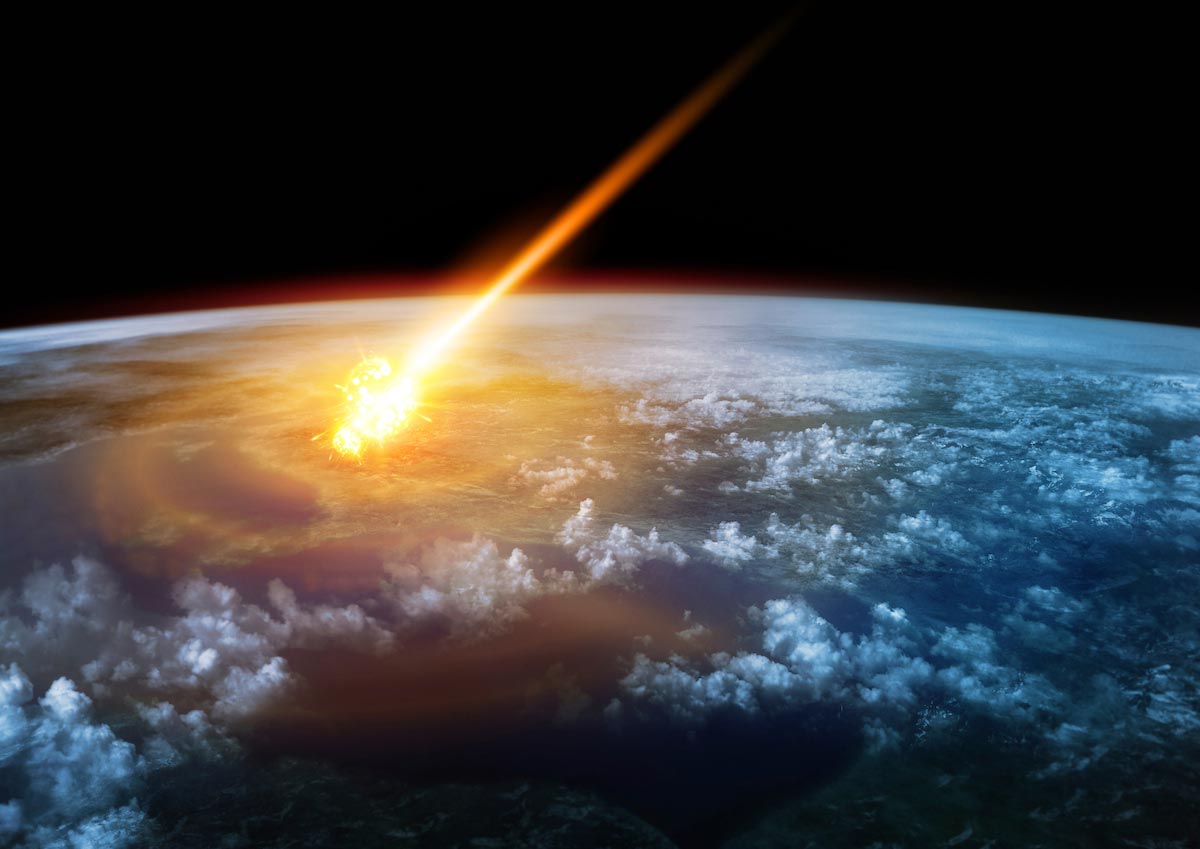Since the beginning, humanity has always interested in how and when exactly life was created on Earth, and many have theorized to determine and solve this puzzle. Today, we meet again with the newest finding scientists have made about this matter. According to international researchers, life began due to small meteorites that felt in “warm little ponds” on the Earth’s surface, instead of the sea – as it was previously thought.
Some scientists believe that life started when ancient, heavy-strong volcanoes erupted and spat lava to the deep sea. However, this new research performed by scientists at McMaster University in Canada, and the Max Planck Institute in Germany, leads us to 1871, when Charles Darwin tried to explain how the first form of life could be created.
Researchers say that life started when not even the Earth was entirely created: continents were still taking shape, millions of extraterrestrial objects were falling and hitting the Earth surface, volcanoes exploding, and hurricanes forming.

Both lead researchers of the McMaster’s Origins Institute and its Department of Physics and Astronomy, Ben K.D. Pearce, and Ralph Pudritz, assured that not even the ozone that protects the planet from the ultraviolet rays was formed.
“No one’s actually run the calculation before,” says Pearce. “This is a pretty big beginning. It’s pretty exciting.” – The Daily Mail reported.
Ammonia and hydrogen cyanide, the key components for creating life
The team suggests that life began between 4.5 and 3.7 billion years ago when small meteorites – under eight inches wide – struck the Earth. Some of these that fell over the “warm little ponds” contained two chemicals necessaries to create the molecule called RNA: ammonia and hydrogen cyanide. According to the researchers, these RNA molecules were formed during the wet phase. And when the ponds dried out, all the chemicals concentrated and forced the long-chain molecules.
Darwin suggested once, in a letter that he sent to a fellow scientist, that life began in “some warm little pond with all sorts of ammonia and phosphoric salts, light, heat, electricity etcetera present.” This is the first time that a team of scientists reaches such a similar conclusion, with the due evidence-based calculations.
Co-author Dr. Thomas Henning is also very confident about this result. He believes that if the world wants to understand the origin of life, “we need to understand Earth as it was billions of years ago.” And in this study, he thinks, “astronomy provides a vital part of the answer.”
Dr. Henning assures that even the sun influenced on life in Earth’s creation because everything outside our planet has always affected the same Earth. He believes that the details of how our solar system formed “have direct consequences for the origin of life on Earth.”
“Because there are so many inputs from so many different fields, it’s kind of amazing that it all hangs together,” Pudritz said. “Each step led very naturally to the next. To have them all lead to a clear picture in the end is saying there’s something right about this.”
Source: Proceedings of the National Academy of Science
